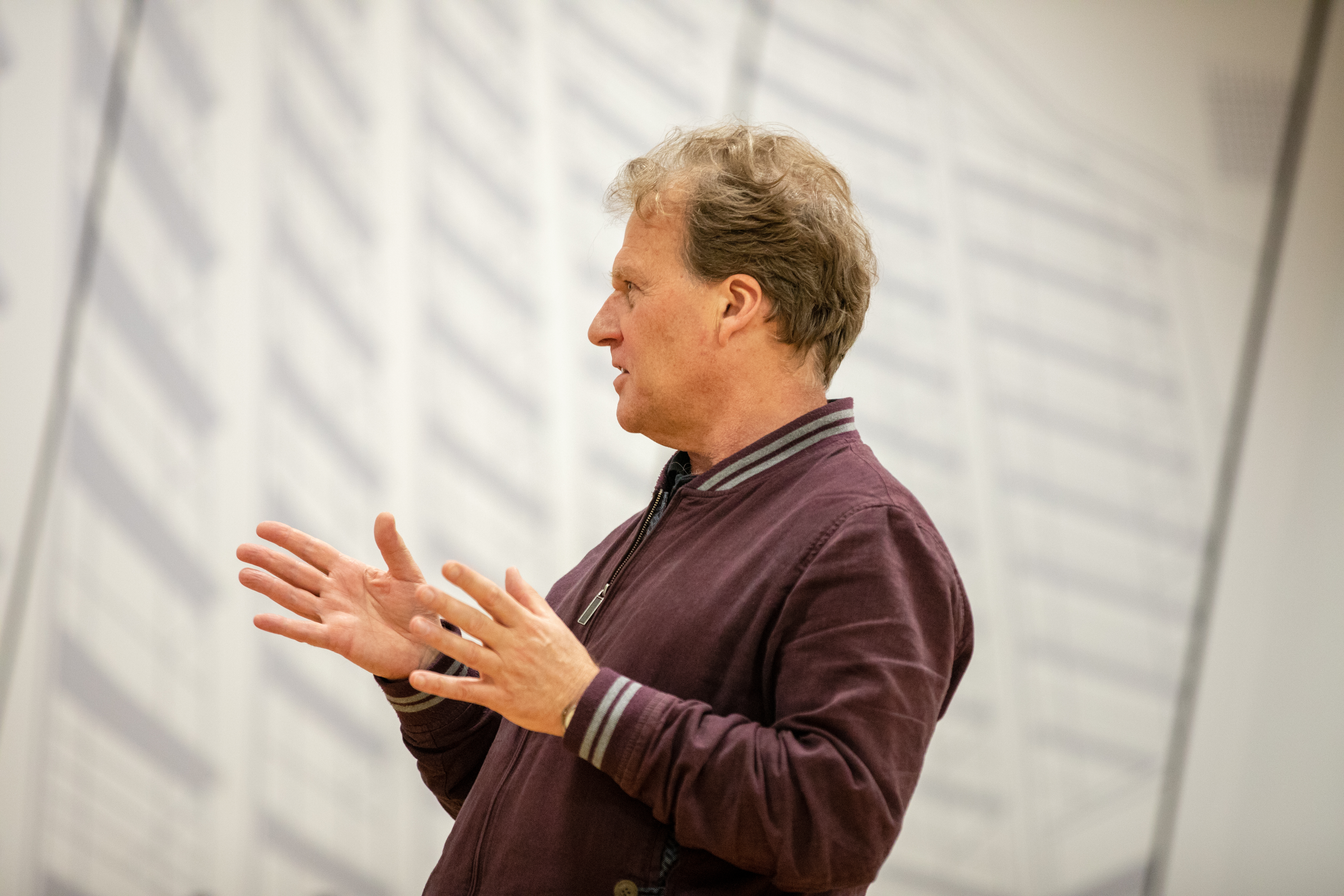Interview with Enron Director, Jonathan Martin

Shocking. Zany. Satirical. That’s how Director Jonathan Martin would describe this year’s Curve and De Montfort University (DMU) co-production, Enron. In this interview he tells us more about Lucy Prebble’s play, working with DMU’s talented students, and why these opportunities are important for the next generation of theatre talent.
You’re directing at Curve for the first time, what is your background in theatre?
I trained as a theatre director at Drama Centre, London, then I spent fifteen years working professionally in a range of theatres, both nationally and internationally, before moving into teaching in drama schools including Drama Centre – where I was actually part of a team of teachers who taught Curve’s Artistic Director Nikolai Foster! He was training as an acting student, but it was quite clear at the time that he already had a keen interest in directing. For the last seven years I have been Principal of Drama Centre. I made the decision to leave last year to work on my own projects. Coming to Curve to direct Enron is, in a way, a meeting of both those two worlds, and not that dissimilar to the kind of directing I’ve been doing over the last few years.
Enron is a very dramatic real-life story, what is your approach to this play?
First of all, Enron is a big epic ensemble piece with lots of characters and a story which spans the best part of 15 years. It’s based on real events and is highly theatrical. The subject matter – high finance, rampant speculation and a stock market crash is a great source of theatrical material, inherently absurd, shocking and dramatic, even farcical at times.
How are rehearsals going? What is it like working with the students from De Montfort University?
Rehearsals are going very well, it’s a big play to put on and technically quite demanding so we’re trying to get ahead of ourselves as much as possible before moving into the theatre. It’s quite spectacular and the students from De Montfort University are great – they recognise that it’s a story of their time and is very relevant to them. It’s a story of lies, cover-ups and people being in denial of the truth. It could so easily all happen again today.
Why are these experiences important for students?
Curve is their main local theatre which makes it incredibly important for students of any educational organisation to come here and connect with the work and culture of the theatre. They feel part of that here and their involvement in productions like this enhances and enriches their personal experience and their connection to Curve’s work. To work with a professional team is fantastic and a great opportunity for them to get a better understanding of the industry.
What do you think people will enjoy most about this production?
I think they’ll see that it’s a shocking and relevant story and hopefully have a good night in the theatre at the same time. Enron was not written or conceived as a lesson, but as a piece of theatre. it’s a great story told very theatrically. You can tell the writer has enjoyed using a whole range of different theatrical forms and references to popular culture to strike a balance between presenting a serious subject and including lots of comedy and biting satire.
This story feels very relevant to our lives today, why do you think that is important?
The play tells the story of a financial crash and malpractice. It’s shocking but even after this story took place we experienced another crash in 2008, and we still haven’t fully grasped the implications of that and the possibility of it happening again. On a deeper level the play asks if our financial model is sustainable. Are we doomed to be trapped in endless cycles of boom and bust?
Unfortunately, it seems that stories like Enron will be repeated. The greed culture of materialism is still very much with us. It’s the kind of play which hopefully can provoke critical reflection on real events. We’re all in this business to make some kind of change, whether that’s a change of thinking or understanding. That’s what really unites theatre and education – in some way we all want to ask questions and provoke change.
Can you describe this production in three words?
Shocking. Zany. Satirical.